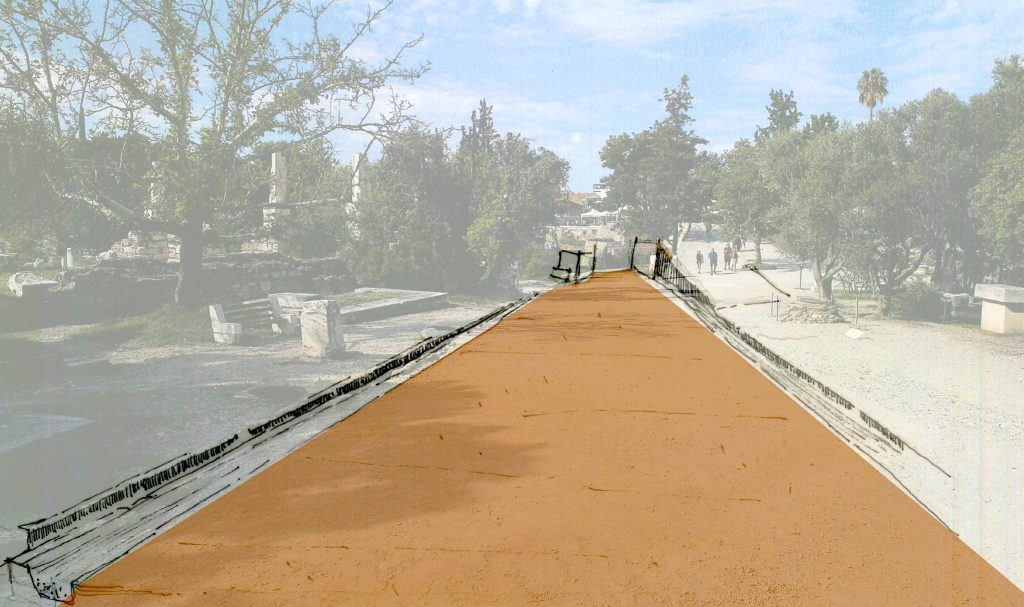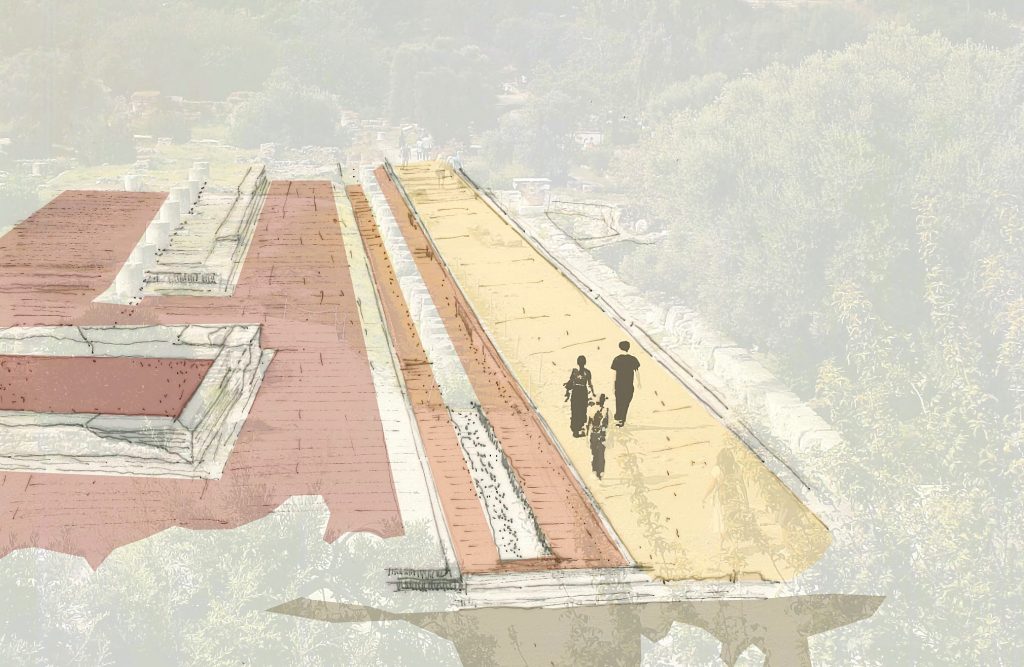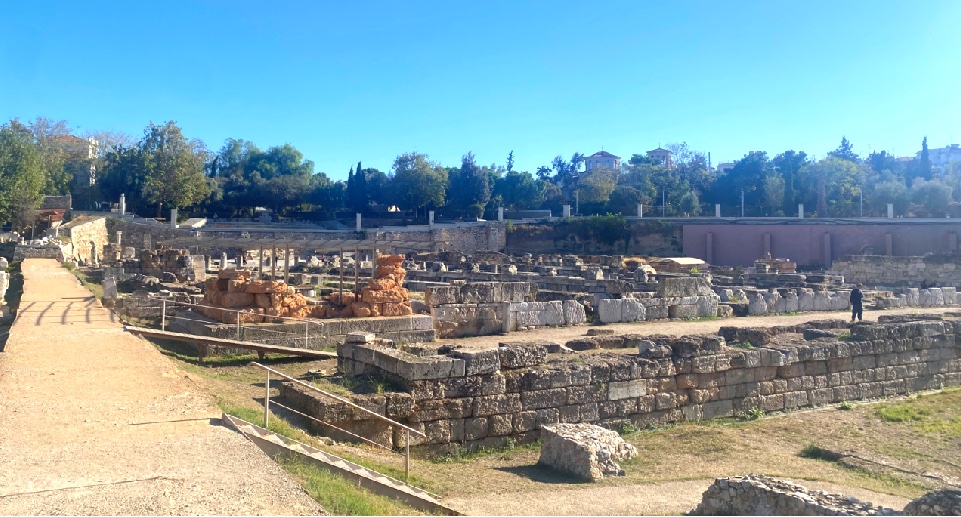Two popular attractions in Athens: the Ancient Agora and Kerameikos, located northwest of the Acropolis, will undergo upgrade works to ensure among others the sites are accessible to people with disabilities, the Greek Culture Ministry announced this week.
The project focuses on improving functionality and visitor access, including the restoration of walkways, the creation of new accessible footpaths, and the addition of resting and viewing areas.

A 3D image of upgraded walkways in the Ancient Agora of Athens, Greece. Photo: Greek Culture Ministry
Budgeted at 5.8 million euros, refurbishments also include protective measures for monuments, improved entrances, upgraded rainwater drainage, fire protection systems, and service infrastructure enhancements.
“The improvement and restoration of walkways in the archaeological sites of the Ancient Agora and Kerameikos is a priority for the proper functioning of the sites and aligns with the principles of inclusivity and accessibility,” said Culture Minister Lina Mendoni.

3D image of changes to the visitor footpaths in the Ancient Agora in Athens, Greece. Photo: Greek Culture Ministry
Mendoni emphasized that the upgrades aim to facilitate navigation throughout the sites, ensuring universal accessibility. Newly designed routes will allow visitors with mobility challenges to freely explore the archaeological and monumental environment. Enhanced stopping and viewing points will further enrich the visitor experience, offering better perspectives and understanding of the sites.
The Ancient Agora, dating back to the 6th century BCE, was the center of Athens’ public, political, and commercial life, and the birthplace of Democracy.
Kerameikos was both an ancient cemetery and a district for potters and artisans. It served as the principal burial ground of Athens from the 12th century BCE.



